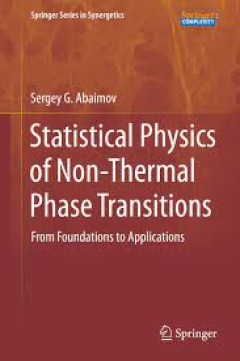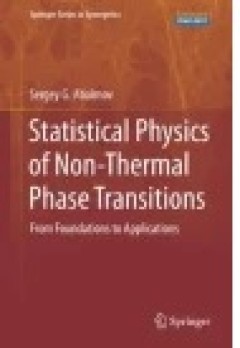Filter by

Statistical Physics of Non-Thermal Phase Transitions
This book addresses the application of methods used in statistical physics to complex systems—from simple phenomenological analogies to more complex aspects, such as correlations, fluctuation-dissipation theorem, the concept of free energy, renormalization group approach and scaling. Statistical physics contains a well-developed formalism that describes phase transitions. It is useful to appl…
- Edition
- 1
- ISBN/ISSN
- 978-3-319-12469-8
- Collation
- -
- Series Title
- XIV, 497, 142 b/w illustrations, 2 illustrations in colour
- Call Number
- -

Statistical Physics of Non-Thermal Phase Transitions
Statistical physics describes a wide variety of phenomena and systems when interaction forces may have different natures: mechanical, electromagnetic, strong nuclear, etc. The commonality that unites all these systems is that their belonging to statistical physics requires the presence of thermal fluctuations. In this sense these phenomena necessarily include the thermodynamic aspect. Meanw…
- Edition
- -
- ISBN/ISSN
- 978-3-319-12469-8
- Collation
- -
- Series Title
- -
- Call Number
- -
 Computer Science, Information & General Works
Computer Science, Information & General Works  Philosophy & Psychology
Philosophy & Psychology  Religion
Religion  Social Sciences
Social Sciences  Language
Language  Pure Science
Pure Science  Applied Sciences
Applied Sciences  Art & Recreation
Art & Recreation  Literature
Literature  History & Geography
History & Geography